I love the diversity of herbal vinegars. Whether you use them to spice up your marinades, soften your skin, or clean your kitchen, herbal infused vinegars are a great condiment to have around. Read on to find out how to make herbal vinegar and get one of my favorite recipes, Lavender Rosemary Vinegar.
Benefits of Herbal Vinegar
Most herbal vinegars have multiple uses. I keep herbal vinegars in the pantry and the medicine chest, and we always have a gallon of some sort of herbal vinegar next to the bathtub.
Found in almost every home, vinegar can be used for much more than flavoring and tenderizing meat and vegetables. It enhances the nutritional value of any meal, heals the skin, and inhibits the growth of bacteria in food.
Vinegar is a great medium for extracting minerals from herbs. Adding vinegar to bone marrow broths coaxes the minerals from the bones into the soup. Steeping herbs in vinegar pulls vitamins and minerals from the herbs, preserving them for meals in the coming season.
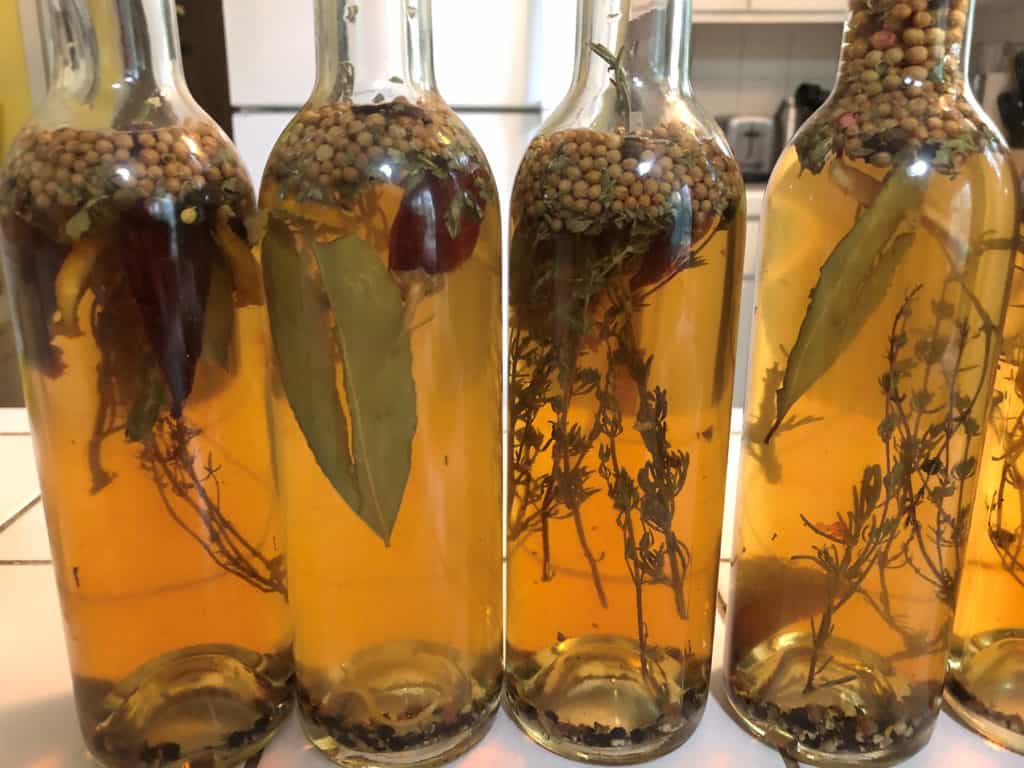
Herbal vinegars are easy to make and can add a variety of flavors to your meals that will continue to surprise and amaze those who eat your food. “What is in this sauce?” That may be a little difficult to answer. Not only does your sauce contain herbs that are specific to a particular season, but if you harvested the herbs yourself, then sunshine, joy, fresh air, the conversation, and the beauty of the experience are also corked into that bottle.
Hand-harvested and home-crafted foods and condiments carry a memory and a feeling with them that is part of what makes them so special. How you feel and what you think about goes into the food that is prepared. When I pour homemade herbal vinegars into sauces and soups, I find myself smiling from the memory of making them; that really does make your food more delicious.
Let’s talk about how to get herbal vinegars into your herbal pantry.
Herbal Vinegar: Getting Started
- Purchase organic, uncooked apple cider, white wine, red wine or rice vinegar.
- Choose herbs or spices to be infused. You can make medicinal and culinary herbal vinegars with fresh or dried herbs and spices.
- Use a non-reactive container to make and store the vinegar in. Glass, porcelain or enamel work well. The lid of the container has to be non-reactive as well. If the vinegar touches metal, it eats through it and metal pieces drop into the vinegar. If you use a Mason jar with a metal lid, put 2 sheets of wax paper over the jar before you put the lid on. Plastic lids for Mason jars can also be found at specialty shops.
- Steep ingredients in vinegar for about one month.
- Decant ingredients from vinegar.
Vinegar
You can make herbal vinegars with any type of vinegar. I primarily use apple cider vinegar because of its many healing benefits, including its alkalinizing effect on the body and skin healing applications. Organic, raw apple cider vinegar is easy to find and is usually less expensive than specialty vinegars.
There are several brands of apple cider “flavored” vinegar which consist of white vinegar with caramel coloring in it. Many stores carry this imitation apple cider vinegar product, so read the label and make sure you have real apple cider vinegar that is raw and unpasteurized. Vinegar that has not been heated or processed contains healing enzymes and is a much better product than more processed vinegars
Herbs and Spices
You can make herbal vinegars with fresh or dried herbs and spices in any combination. Normally I mix either fresh or dried ingredients together. There isn’t a rule saying you can’t mix fresh and dried ingredients together if you are motivated in that direction. I usually keep them separate because fresh ingredient vinegars have a shorter shelf life than vinegars made with dried herbs and spices.
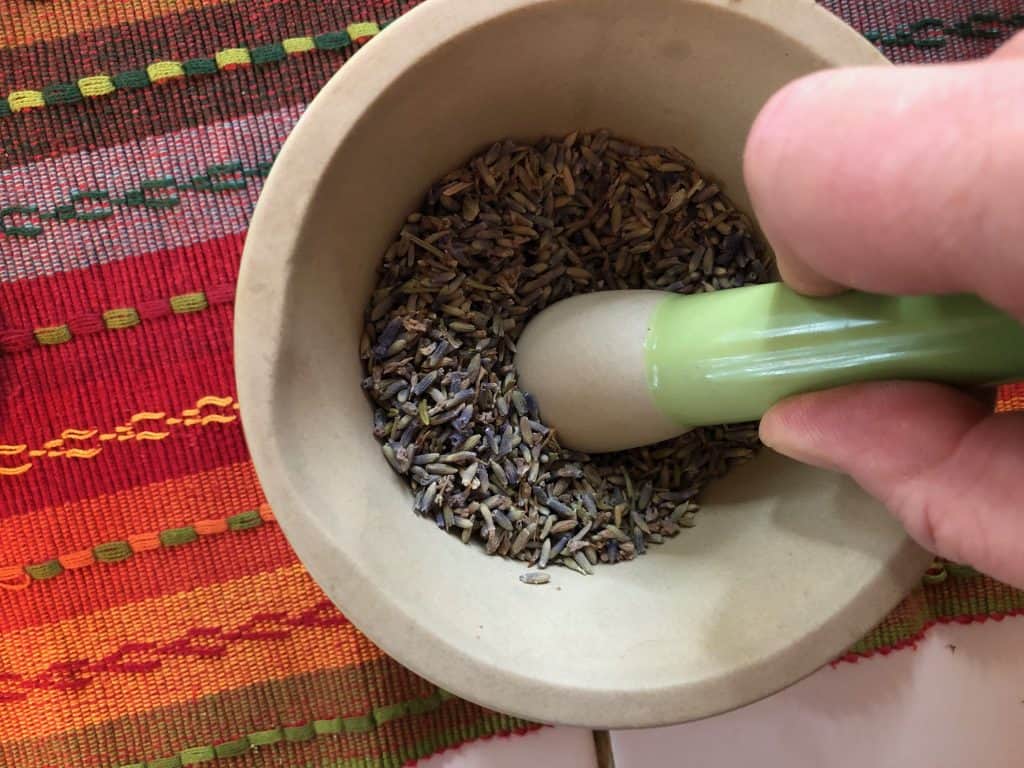
Grind your herbs.
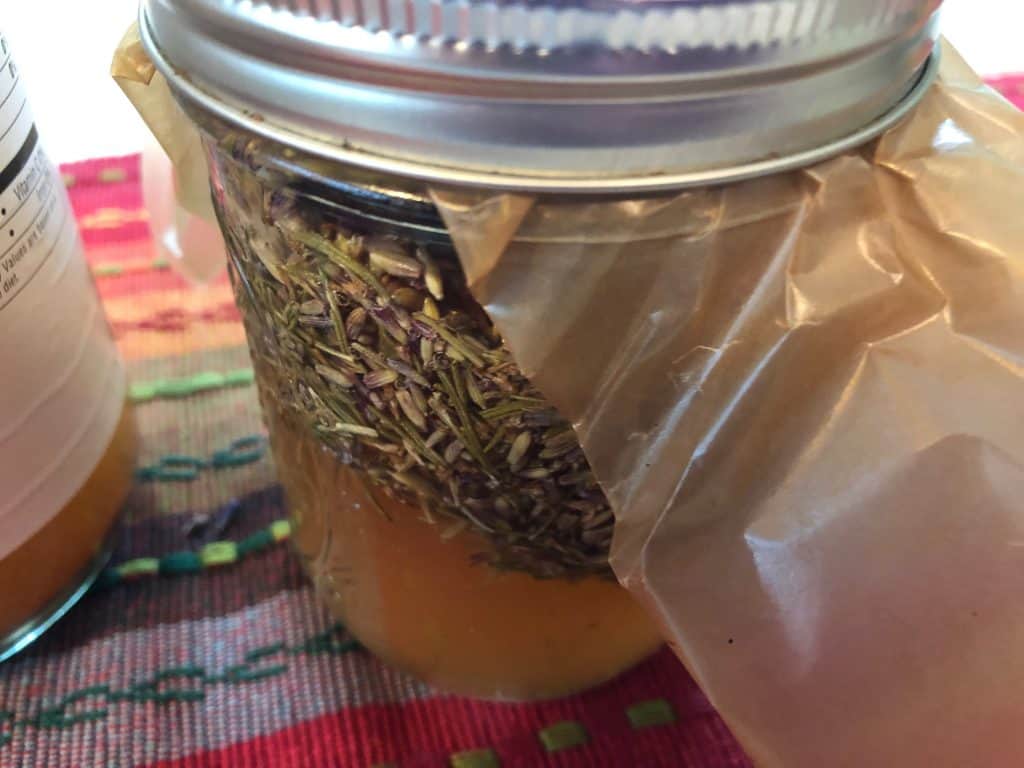
Pour herbs and vinegar into a jar, cover with wax paper or parchment paper and let steep for one month.
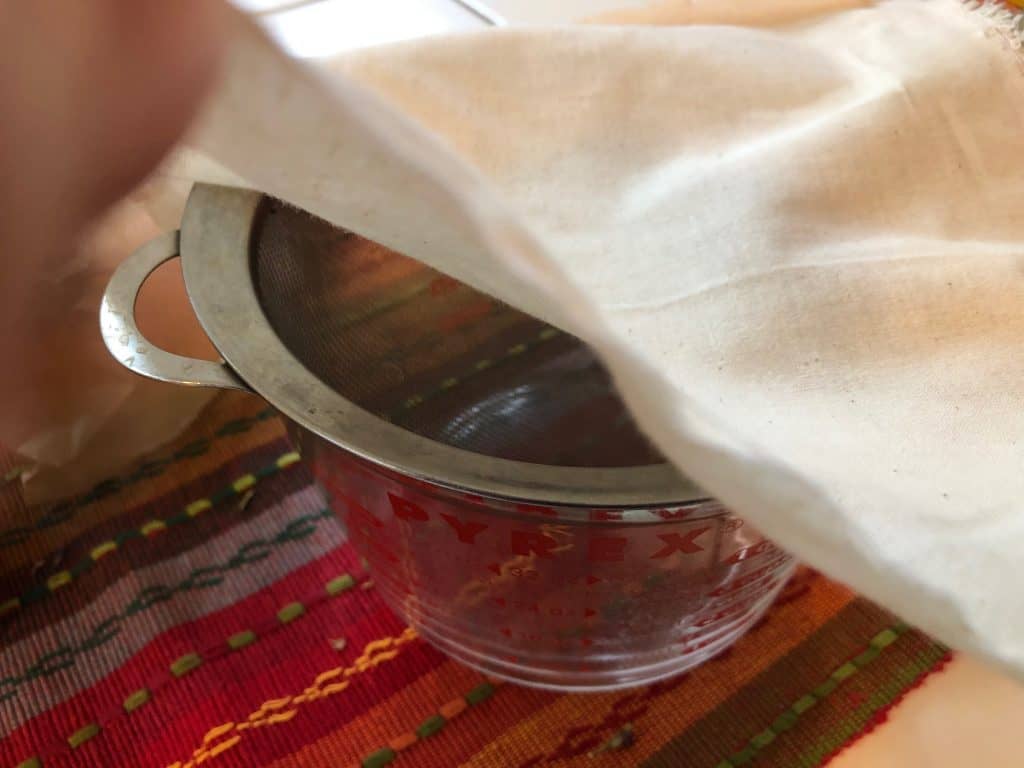
Use cotton muslin to strain the herbs from the vinegar.
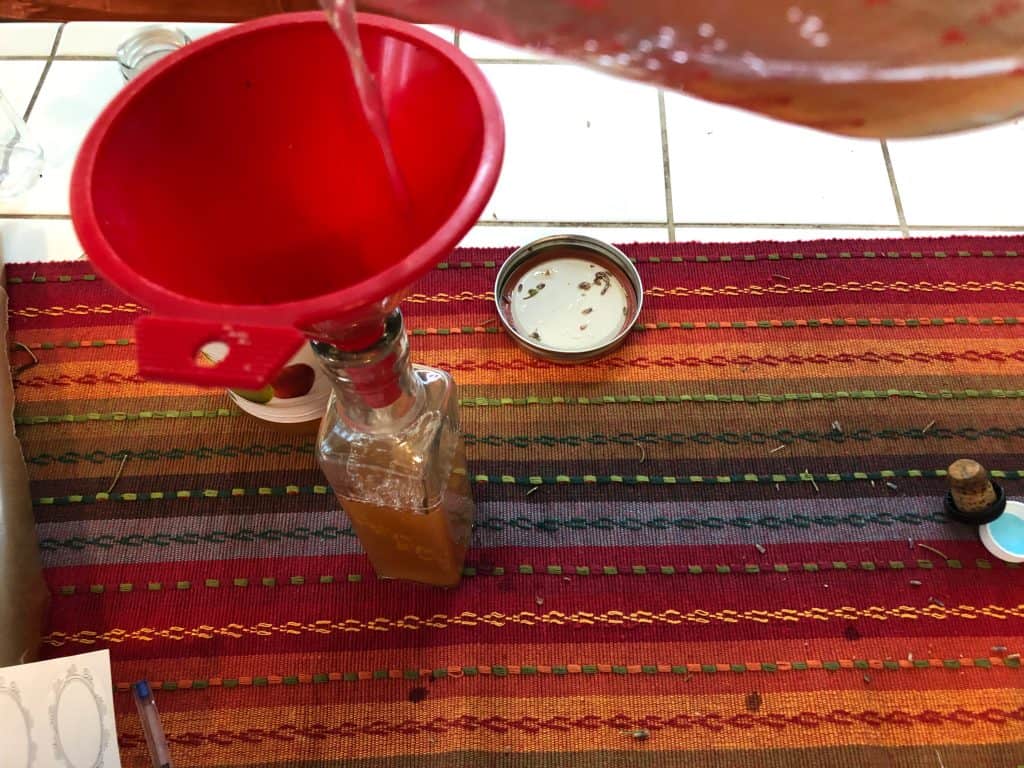
Pour vinegar through muslin to strain the herbs from the vinegar.
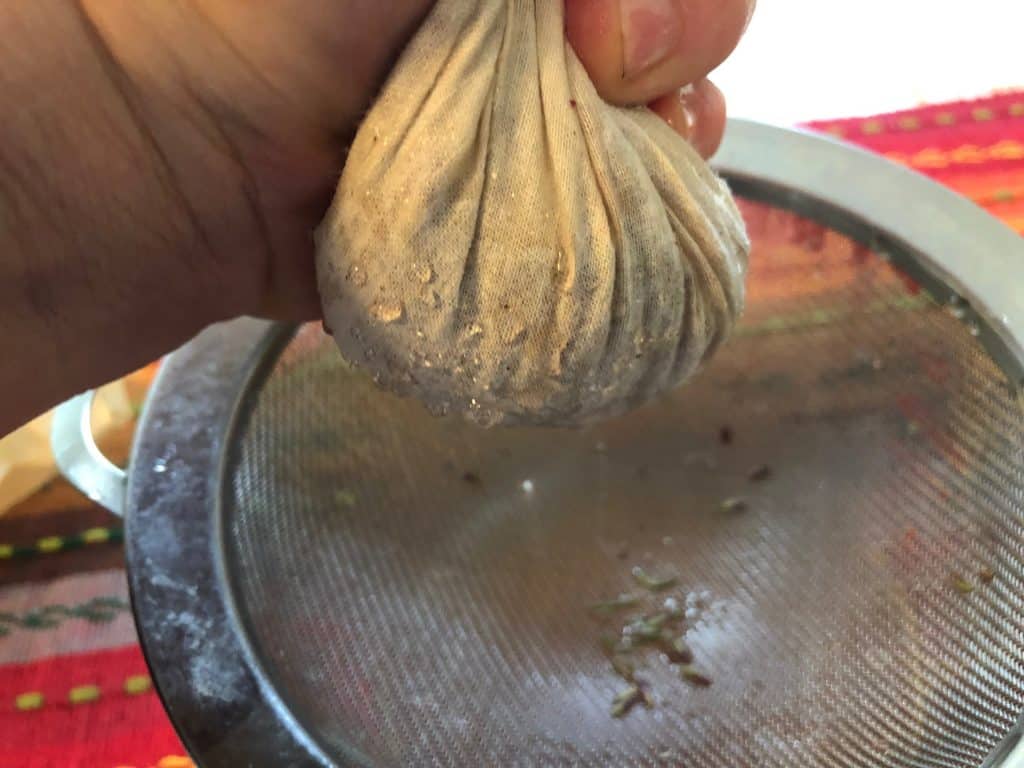
Squeeze the vinegar through the muslin.
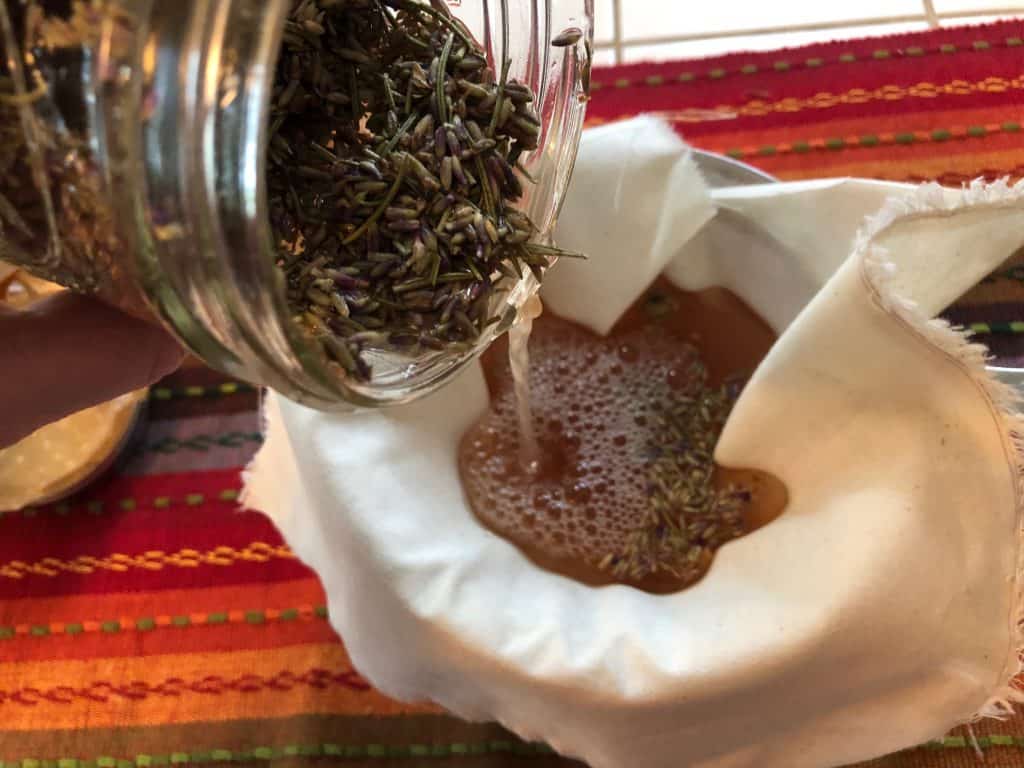
Pour final vinegar in to dispensing jar.
How to Make Herbal Vinegar
Instructions
Fresh or dried herbs:
- Chop fresh herbs as finely as possible
- Put dried herbs in a mortar and smash them up a bit
- Fill a glass jar one quarter full of dried herbs or three quarters of the way full with fresh herbs
- Pour vinegar over the herbs, filling the jar to the top with vinegar
- Make sure that the vinegar covers the ingredients by at least three inches
Dried spices:
- If the spice is in whole form, put it in a mortar and use the pestle to break the spice open a bit
- Dried spices are stronger than fresh, leafy herbs; use less of them in the vinegar
- Fill a glass jar one quarter of the way full with dried spices
- Pour vinegar over the spices, filling the jar to the top with vinegar
Decanting:
- If your vinegar contains only dried herbs and spices, they can be left in the jar for the duration of the vinegar use
- Fresh ingredients need to be strained out after one month
- Vinegars made for cosmetic uses can be concocted with fresh or dried herbs but be sure to strain the herbs out of any vinegar that will be used topically
- Place a funnel into the opening of a clean, sterilized jar and lay cotton muslin over the top of the funnel
- Pour the contents of the jar with the infusing vinegar through the muslin, being careful not to let the contents fall out of the side of the muslin
- Let all the vinegar drain through the muslin cloth and funnel into the clean jar
- If your vinegar is made with fresh ingredients, don’t squeeze what is in the muslin, or water will squeeze out of the fresh ingredients giving you a cloudy vinegar with a shorter shelf life. Just let liquid drip on its own
- Discard the strained-out ingredients into the compost. The liquid left behind is your herbal vinegar
Storage
- Store herbal vinegar in a clean container in a dark cabinet out of heat, light and temperature variation. Your vinegar should last for about a year. Make sure you store the vinegar in a container with a plastic or cork lid. The vinegar will eat any metal it comes into contact with.
You can check an entire chapter on herbal vinegars in my book, The Herbal Kitchen
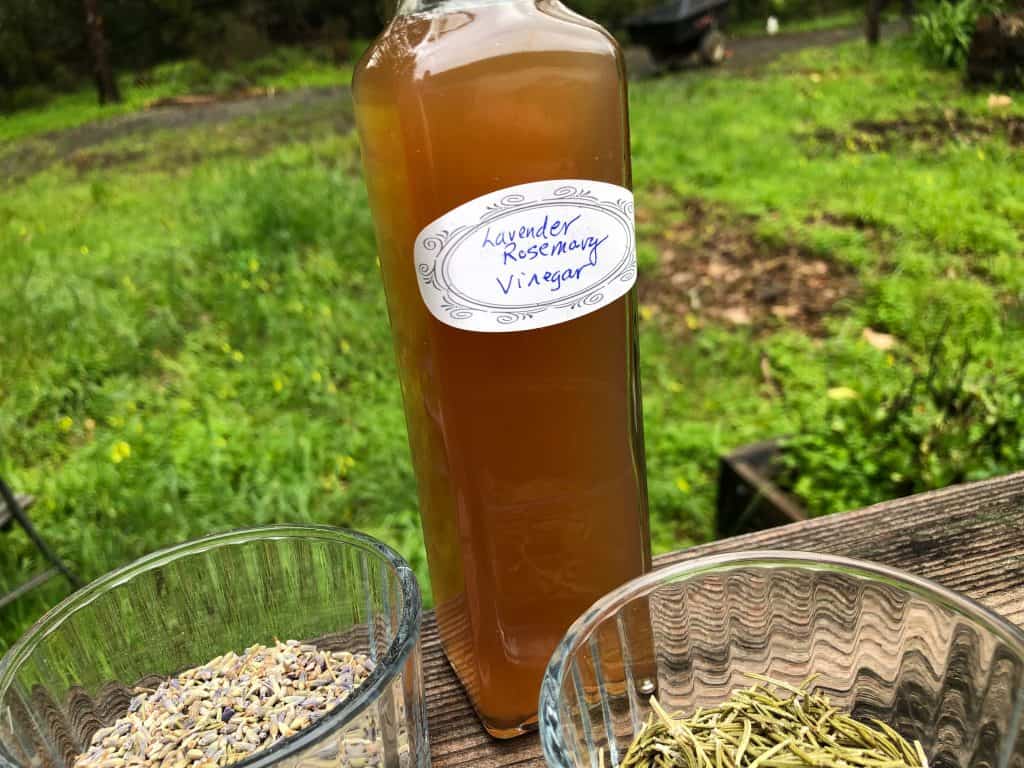
Lavender Rosemary Vinegar Recipe
What single herbal condiment can help you digest your dinner, fight off a cold, give you soft and silky hair, treat acne, and you can use it to clean your kitchen counter? I know, it sounds too good to be true, but Lavender Rosemary Vinegar fits the bill!
Add this vinegar to your dressings and it will help you digest your meal. Put two tablespoons into a warm cup of water at the onset of a cold. Put it into your bath and watch skin redness diminish as you emerge with much softer skin and hair. Then when you are ready to clean the bath tub, use the vinegar to scrub it down. Now that is one versatile home remedy!
Lavender Rosemary Vinegar
Ingredients
- 1 cup apple cider vinegar
- 1 cup dried lavender
- 1 cup dried rosemary
Instructions
- Put herbs and vinegar in a clean glass jar
- Use a plastic lid or cover the jar
- If you use a metal lid, cover the jar with wax paper and put the lid on
- After a couple of days check the jar to make sure that the herbs are still submerged in the vinegar.
- If necessary, top it off with more vinegar
- Let infuse in a cool dark place for one month and then strain out and discard herbs
I would love to hear from you! What are your favorite herbal vinegars and how do you like to use them? Please share in the comments below.
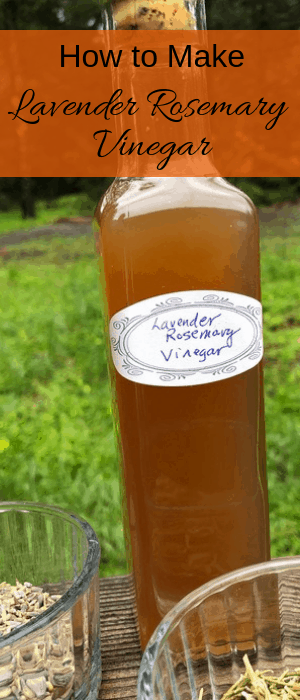
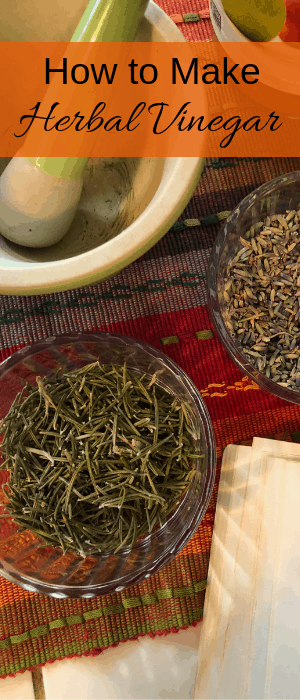

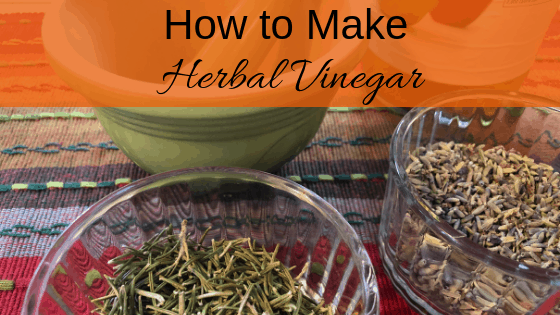
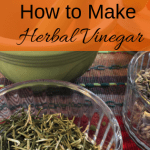



This sounds like a tasty vinegar or one that might help make the ACV go down a little bit easier. I’m not a fan of the taste. Thank you.
I love making infused vinegar with chive blossoms. So beautiful and tasty. Violets make also a lovely colored vinegar. Sage and lemon. Tulsi and lavender……….
Yum
I just love this, thank you so much! I have everything I need right in my own garden.
That’s awesome!
Always looking forward to your recipes and home remedies. For sure I will stick around o learn more.
I would love to hear more ideas for recipes and herbs you tend to use to make these. Will try lavender ans rosemary, any other suggestions for helping with digestion or skin issues? I pre-ordered you book after the Medicine Stories podcast. CANNOT WAIT! 😀
oh good, you will have a lot to play with, i have an entire chapter on herbal vinegars in The Herbal Kitchen and one specifically for skin~!
My favorite is wild violet for use in salad dressings, drinks, and medicine.
♡